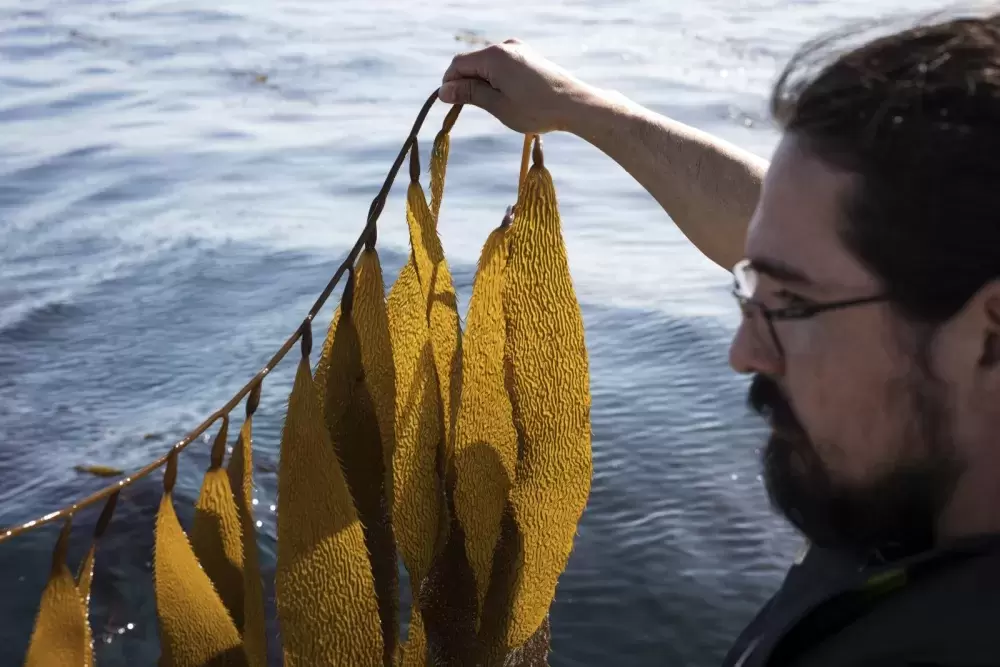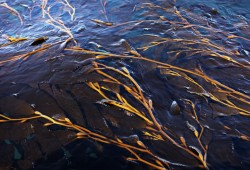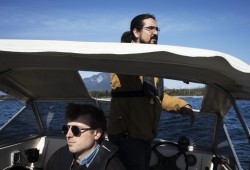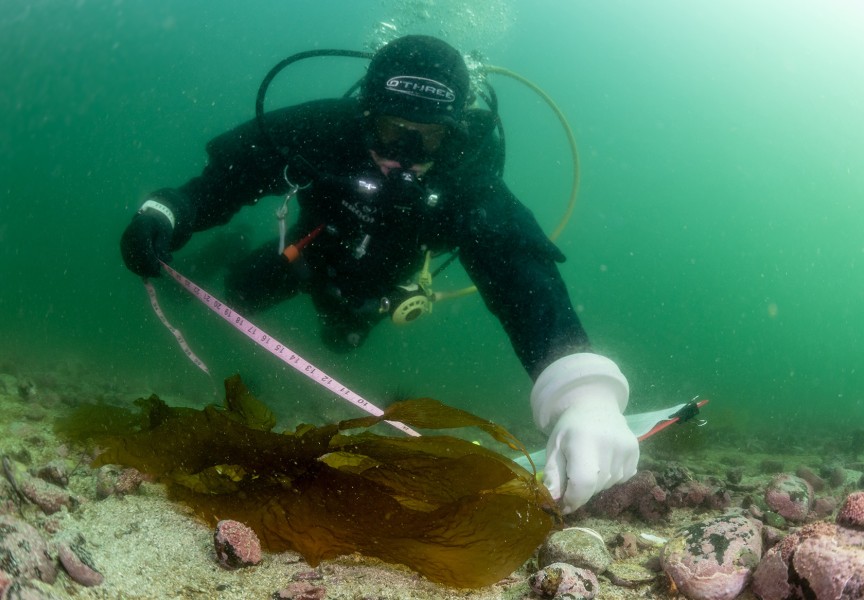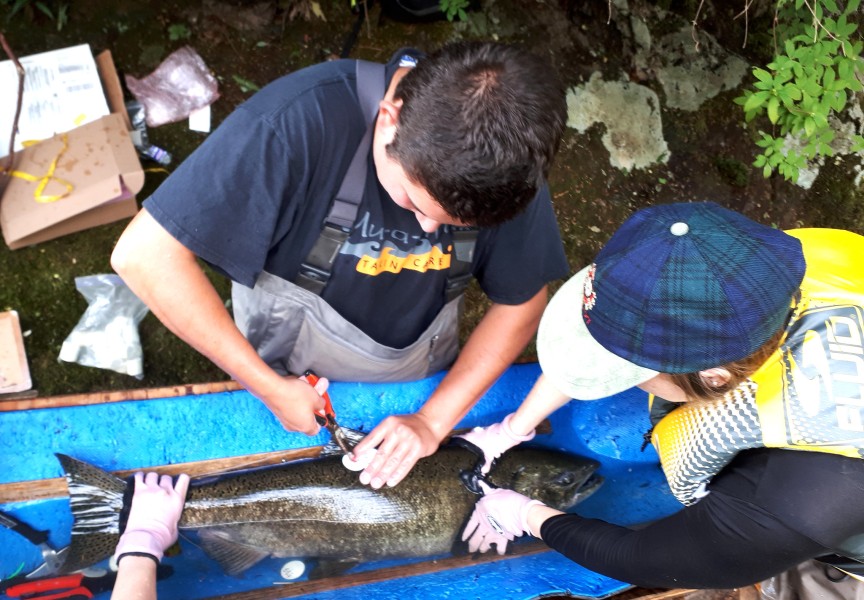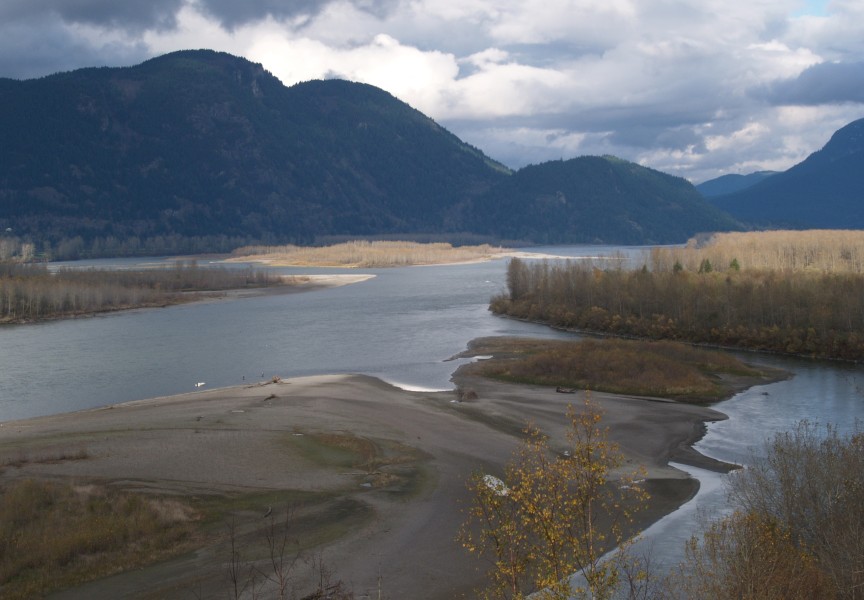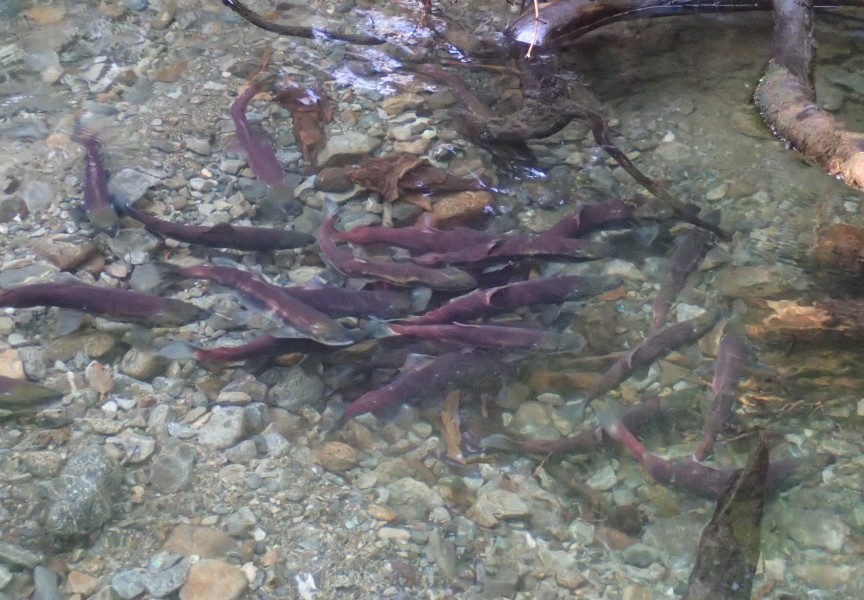Stevie Dennis and Jordan White live in their respective boats that are moored across from each other on Strawberry Island, in the Tofino inlet. For the business partners and friends, the ocean is their very lifeline.
Recently, they further cemented their ties to the sea by launching their new business, Keltsmaht Kelp. Their aim is to integrate the natural benefits of kelp into the every day, while conducting ecologically-minded business.
As they work towards establishing a kelp farm in Ritchie Bay, the duo recently released its first product, kelp probiotic.
“It’s plant food,” said Dennis. “That's the easiest way to think about it.”
Using wild bull and giant kelp foraged within traditional Ahousaht territory, Dennis and White tested over 60 variations of the kelp probiotic before releasing it to market.
Now, it lives on the shelves at eight different garden stores across Vancouver Island, including Borden Mercantile Co. Ltd. in Victoria, Buckerfield’s in Langford and Kleijn Nurseries and Garden Centre in Nanaimo.
The business endeavor was a natural progression for Dennis, who grew up on boats helping his parents run one of the first whale watching companies in Tofino by guiding.
As he grew older, the Ahousaht man transitioned into working on a packing boat and commercial fishing boat, before returning to work as a guide for the Clayoquot Wilderness Resort around five years ago.
It was there he first met White, who was paired as his roommate. Bonding over their love of all things oceanic, they became fast-friends.
When White moved on to study business at The University of Victoria and discovered his passion for kelp through an elective course, seaweed quickly became the subject of their conversations.
Before long, the old roommates started dreaming of ways to morph their mutual interest in kelp with creating sustainable business opportunities in Clayoquot Sound.
“I’m a product of my environment,” said Dennis. “Working with kelp was something that I saw as an opportunity to give back. We’ve taken, we've taken, we've taken almost every day of our lives and we rarely ever give back to the environment.”
During his fourth year of university, White returned to Tofino in 2019 while working as a co-op student researching kelp in partnership with North Island College. Dennis, who was working for the Maaqutusiis Hahoulthee Stewardship Society, was his boat driver.
They spent the day dropping kelp test lines for Cermaq, before asking themselves, “What are we doing working for other people doing what we love?” recalled White.
It was a tipping point for the kelp enthusiasts, who became determined to bring Keltsmaht Kelp to life.
Named after Dennis’ mother’s side of the family, who were from Kelsmaht Nation, it is meant to serve as a reminder of his family’s teachings.
“My grandpa always said, ‘know who you are and don’t forget it,’” recounted Dennis.
Seaweed aquaculture is not only the fastest-growing sector of global food production, but offers opportunities to mitigate climate change by sucking carbon from the atmosphere.
“When you think kelp, you think green,” said Dennis.
Their ultimate goal is to become a carbon-negative company.
“The possibilities are limitless,” said Dennis. “You could turn it into food, you could turn it into fuel, you could turn it into a bioplastic, you could even grow it and let people pay for carbon [offset] credits.”
For Dennis, kelp presents an alternative opportunity for work within the region.
“If we can create kelp farms here in Clayoquot Sound and give that opportunity to community members, it’s a win for everybody,” said Dennis. “It’s a win for the people and it’s a win for the ecosystem.”

